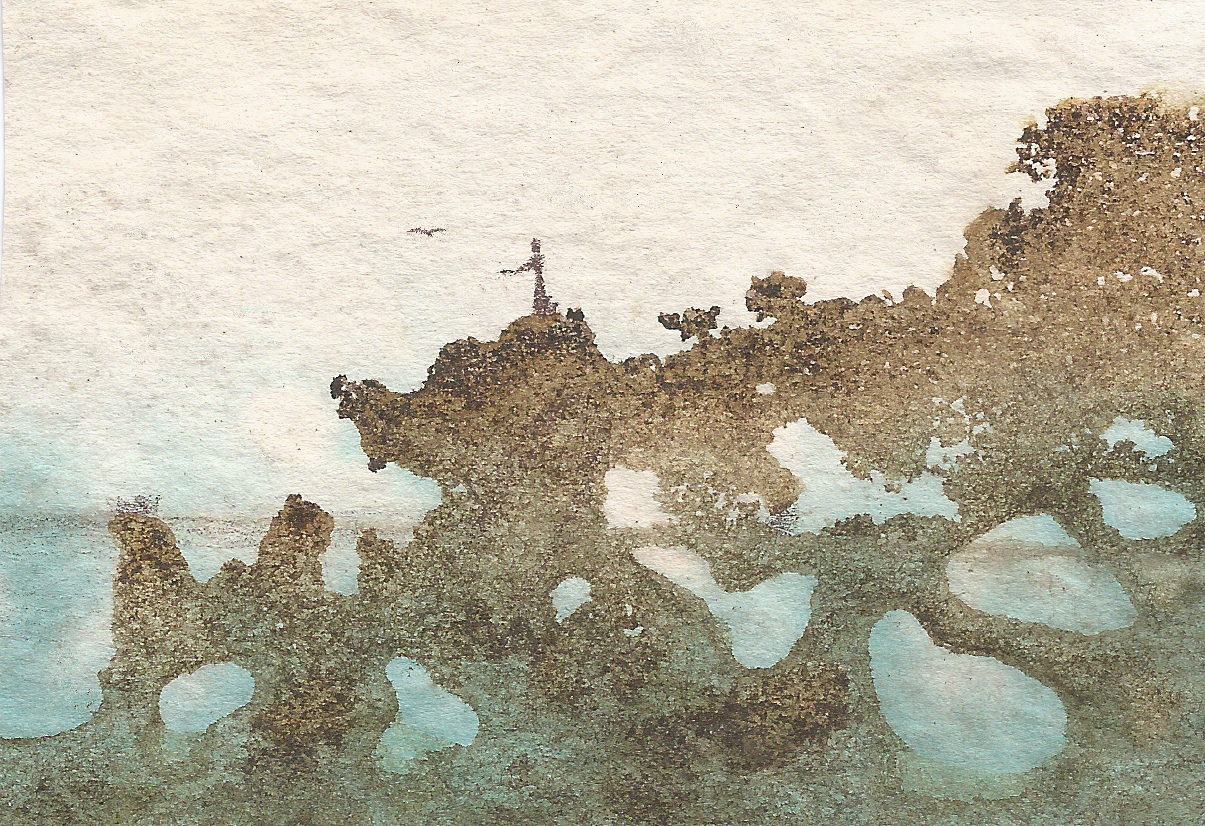Slobodan Dan Paich
San Francisco, California, USA
They Understood Each Other, 2022
Tea and Ink on Watercolor Paper
Framed print generously donated to UWM by ARTSHIP
Paich’s technique developed out of a desire to use tea to slow down and seize moments, drinking tea and drawing with it to produce small meditations on the creative process.

Slobodan Dan Paich's Biographical Sketch (from ARTSHIP)
Slobodan Dan Paich who is a native of former Yugoslavia, was born after the Second World War. He lived in England from 1967 to 1985. Slobodan taught the History of Art and Ideas, Design, and Art Studio from 1969 through 1985 at various institutions in London, including North-East London Polytechnic, Thames Polytechnic, Richmond College-American University in London, and as a guest at Glasgow School of Art.
Between 1986 to 1992, he taught at the University of California at Berkeley. Along with a number of scholars, artists, and community leaders, he founded the Artship Foundation in 1992, and has been its Executive Director ever since. He also served as a board member of the Society of Founders of the International Peace University in Berlin/Vienna from 1996 to 2002, where he lectured annually and chaired its Committee on Arts and Culture. He succeeded Jehudi Menuhin in this role and passed it on to Ishmael Ivo at the end of his tenure.
Slobodan attended Classical Gymnasium in Belgrade (the former Yugoslavia) where he matriculated with a thesis in Art History. He graduated from the Belgrade Academy of Fine Arts, and also attended History of Art classes at the Faculty of Philosophy, University of Belgrade. He received a Master of Fine Arts degree from the Royal College of Art, London, following three years of comparative cultures research, he graduated with the thesis: Enquiry into Recourses, Means, Theoretical and Social Implications of Three-Dimensional Model Making for Environmental Learning and Designing. He also served as co-chair of the Royal College of Art Society's alumni organization.
Slobodan grew up in a family of linguists who translated foreign languages into South-Slav dialects. He grew up with only a few children's books but with black and white reproductions of Botticelli, Leonardo, Durer and was read or recounted the works of Balzac, Tolstoy and Tagore. At the Classical Gymnasium he learned Latin and Greek from age 10 to 18. In post WWII books and suppressed books were more important in his family than food.
In the last nine years, Slobodan Dan Paich has presented a number of papers at international conferences based on his courses, lectures and research since 1969, which address tangible and intangible heritage and cultural similarities and differences of the Greater Mediterranean, the watershed of Asia, Africa, and Europe. The topics, anchored in the history of art and ideas and art practice, include citing archeology, surviving artifacts and folklore, and as such, cover a broad range. His presented papers look at traces of prehistoric polyphonic singing in the Mediterranean, examine continuity of ancient dance traditions in southern Italy, investigate connections between Tarantella and North African Dances, explore cultural connections between Caucasus and the Mediterranean, Africa and the Mediterranean. The papers also draw from his extensive lecture notes on comparative mythology, folklore and social studies. An example among conferences was in the fall of 2013 where Slobodan Dan Paich gave the keynote presentation with the paper Ambiguity of Center and Periphery and the Middle Sea at the 5th International Conference of Mediterranean Worlds titled-Light Colour Line-Perceiving the Mediterranean: Conflicting narratives and ritual dynamics, University of Bern, 9 to 11 September 2013.

